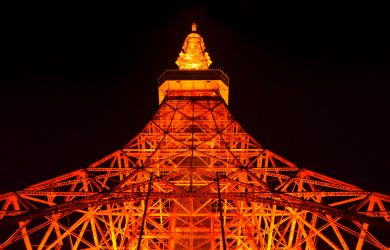
April 28, 2011
Apathy Meltdown
Could Fukushima provide the catalyst for Japanese youth to reach criticality?
By Metropolis
Originally published on metropolis.co.jp on April 2011

Phil Couzens
Calls to protest bring thousands, the conventional press is shunned and rogue academics suddenly find people are willing to listen—it would be going too far to say Japan was joining the Arab Spring, but the nuclear crisis has shown there are limits to youth apathy in this country.
The thirty years since the Bubble burst have at times seemed like an experiment to make a population as lethargic and hopeless as possible and then observe the decline. But there was always a twist that made things different than the malaise of a Tunisia or an Egypt: decent living standards. A roof over one’s head and food on the table are virtually guaranteed, and almost everyone has enough for a trendy wardrobe, a PlayStation and a night of oblivion in an izakaya once or twice a week. If you are satisfied with that, you don’t even have to work very hard for it.
There lies the rub—anyone not willing to settle for a low level of mindless materialism finds their avenues for achievement choked off more and more each year. Those who want to join the elite must throw away their teens in a cram school for a spot in a top school and a chance at one of the ever-shrinking number of escalator-to-success jobs with a major company. Poor nations with little upward mobility turn into breeding grounds for crime and political extremism. Japan—with few worries about basic health and safety—has been stuck with the chronic, rotting disease of apathy. There is plenty of anger, just check out 2 Channel on any given day, but it is a sarcastic screech instead of an indignant shout.
This has changed notably, if perhaps not yet drastically, since March 11. Faced with a public truly scared about nuclear disaster, TEPCO and government officials have found that mealy mouthed platitudes and apologies no longer get them off the hook.
In the last few weeks, the Net has exploded with people looking for and sharing information. NicoNico has transformed from the best site to see the latest drama into a broadcaster of press conferences that draw tens of thousands, underground Geiger counters on live webcams, and a platform for academics and nuclear experts the regular networks won’t give space to. People who had spent hours each day cultivating virtual eggplants on Mixi’s Sunshine Farm began to steep themselves in technical nuclear jargon; becoming conversant in becquerels, suppression chambers and the half-life of cesium-137. And they proved they were willing to leave their computer screens to take to the streets in numbers that surprised everybody on April 10 for a protest in Koenji.
Like any anti-establishment movement worth its salt, this one has developed some conspiracy theories: TEPCO is using the threat of blackouts to keep the public cowed; NHK moved all its staff to Osaka due to inside information on radiation; and my personal favorite, the United States caused the March 11 earthquake so it could strengthen its military foothold in Japan. There’s also been some bad apples calling for the heads of TEPCO employees (I doubt I would have been performing a public service by taking out that old guy who checked my meter last week) but so far no violent words have spilled over into action. The nascent activists have been characterized by the seriousness, morality and attention to detail that is typical of this society at its best.
But is this enough? With hundreds of thousands of Germans protesting against nuclear power shortly after the crisis began but only a few hundred Japanese at Tokyo demonstrations, a close friend said she was embarrassed her fellow citizens were so passive. But it seemed more complicated to me. The 1960s protest movements were one of my country’s greatest moments, but I’ve met enough hate-filled peace activists to make it clear that taking up a good cause does not automatically lead to any kind of enlightenment. On the other hand, the atmosphere of smiles and laughter at the Koenji protest made for a pleasant experience—but I doubt such action will be strong enough to bring significant change to the system.
So how will all this turn out? It seems to me that it mostly depends on the nuclear reactor gods. The young movement has probably not yet reached a state of criticality, so if Fukushima calms down soon, the activists will also cool, though the government will likely find it tough to get any new nuclear plants built. If things get worse, the movement could heat up and instead of a minor annoyance, Japan’s old boy clubs could have a major problem on their hands.
It’s clear Japan’s stifling system of interlinked corporate, government and media interests have played a major role in keeping fresh growth from rising out of the ashes of the Bubble. But after three decades of the status quo, it also is apparent that those without a seat at the table have not been able to find the motivation to make anything happen. The last month has shown what happens when the balance shifts between a corrupt elite and a materially satiated public.







